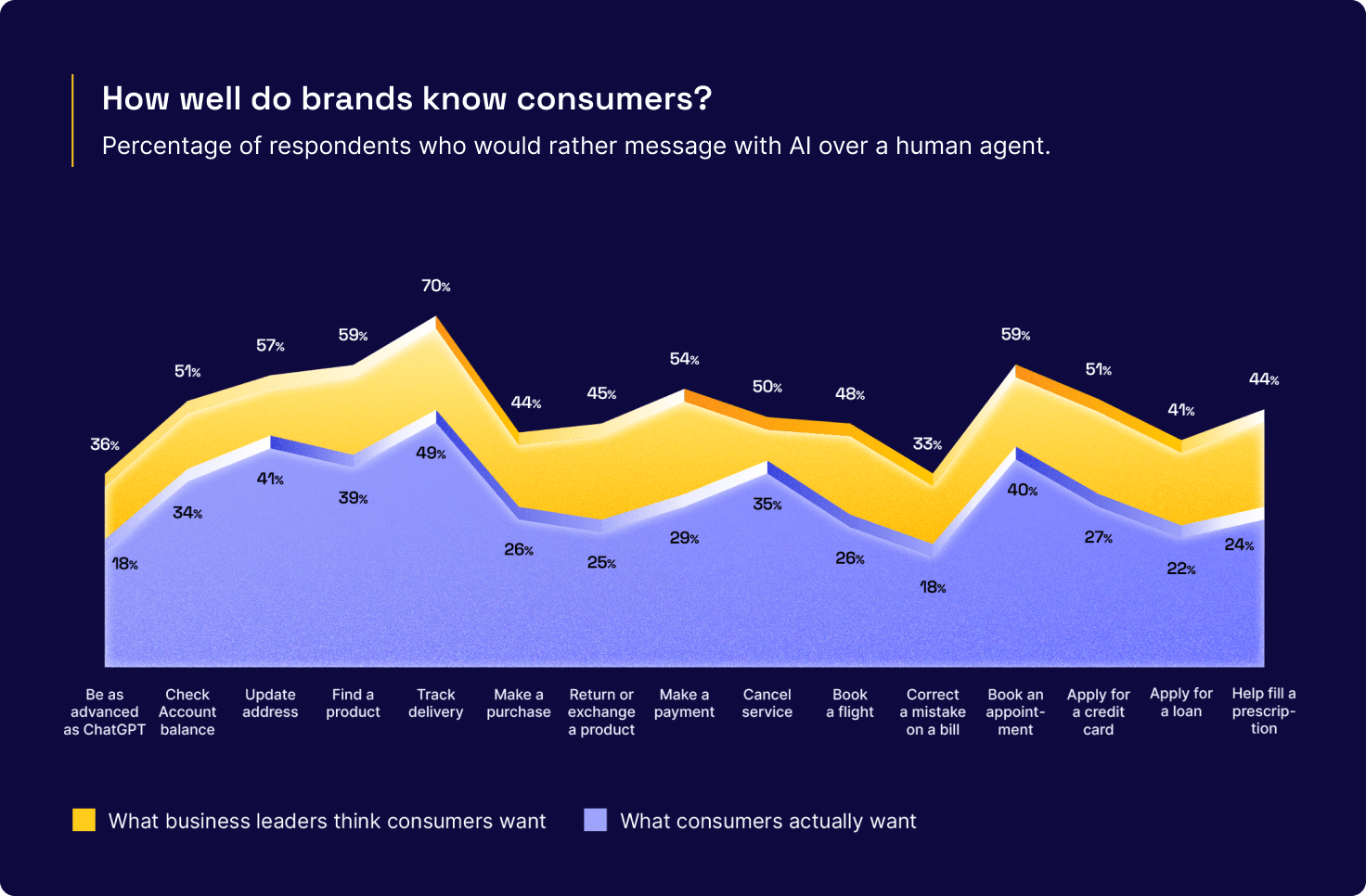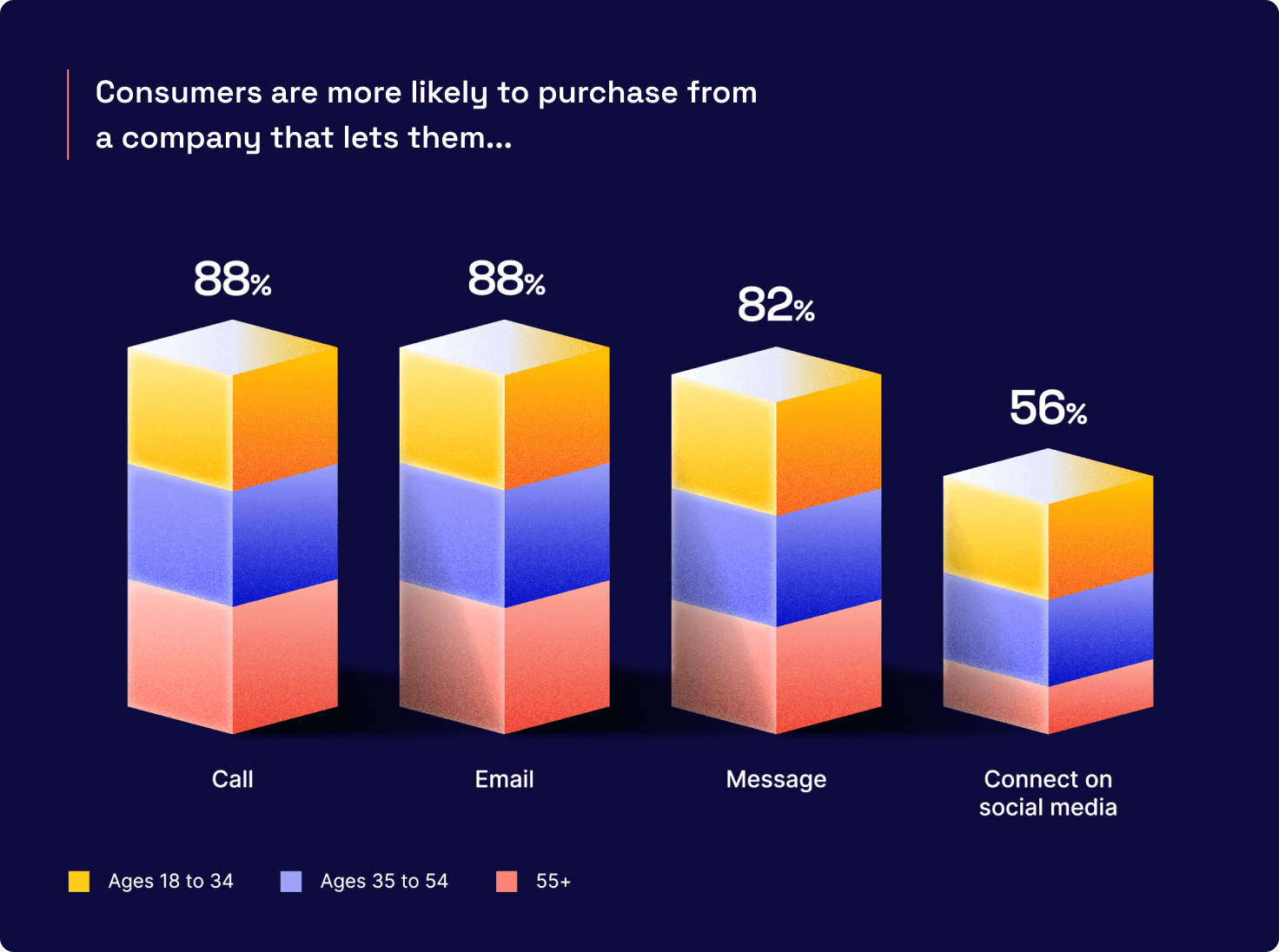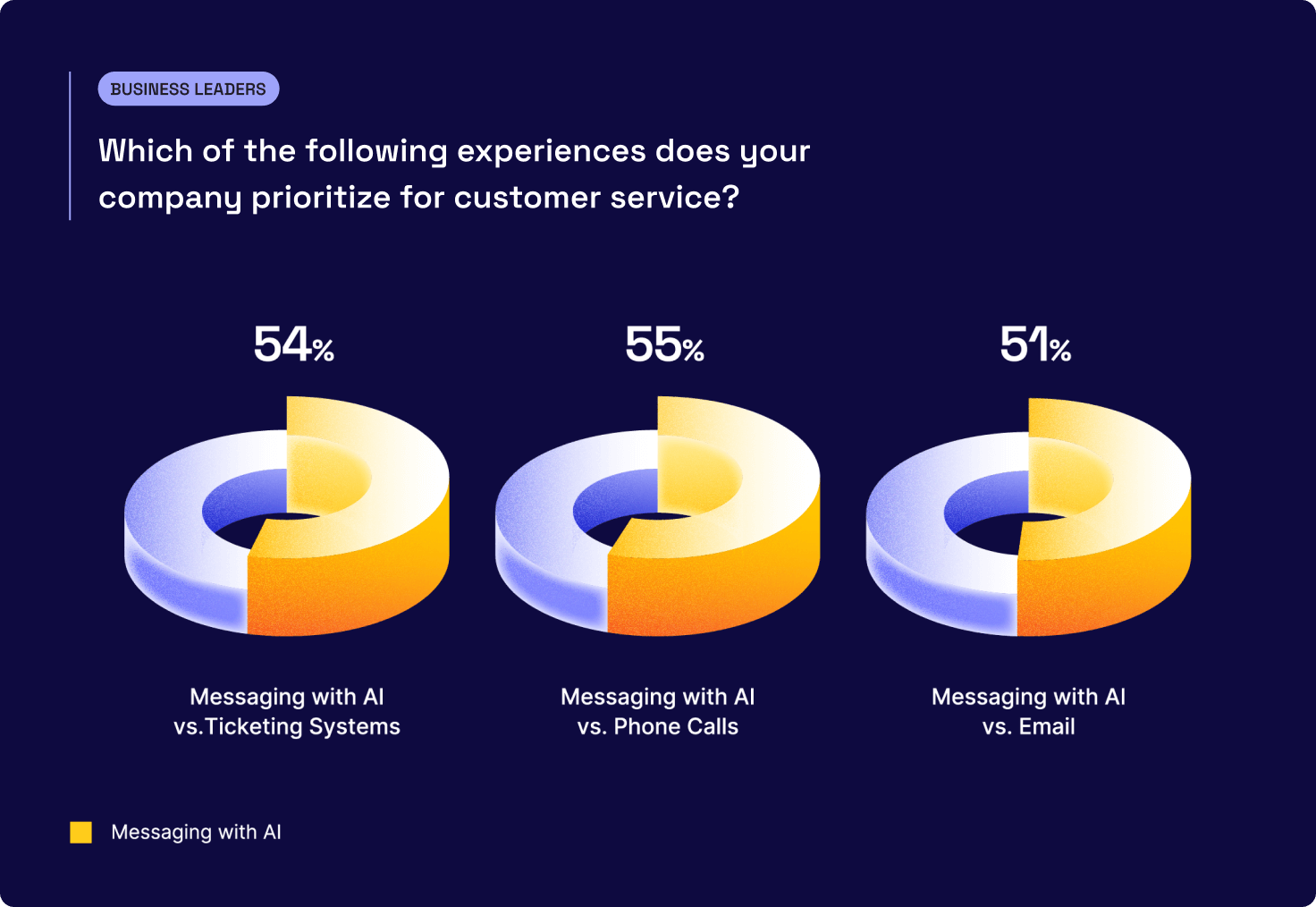article
Explore digital transformation trends in our new report: State of Customer Conversations 2024
New data shines light on the widening AI gap
January 18, 2024 • 5 minutes

It’s 2024, and artificial intelligence is still one of the biggest topics of conversation among the C-suite. Cost-conscious and customer-centric CIOs are looking to accelerate their digital transformation initiatives by operationalizing AI across the organization where it can have a lasting impact. Customer service, in particular, is proving to be a key area of AI opportunity and ROI. Integrating AI into customer conversations transforms more than just the contact center — conversation data holds insights that fuel operational growth across the enterprise.
In our new conversational AI trends report, the State of Customer Conversations 2024, we share exclusive, data-driven insights from consumers and business leaders around AI expectations, preferred support channels, wait times, and key digital transformation trends from enterprise brands like Capitec, Chipotle, and Google.
Propelling successful digital transformation through the Conversational Flywheel™
Our research on customer conversations led us to four distinct areas brands should focus on to bridge the AI gap. We call this the Conversational Flywheel — a framework for continuously improving a corporate digital transformation journey. The flywheel is comprised of four phases for improving engagement and operational efficiency:
- UNDERSTAND what customers want
- CONNECT channels & systems
- ASSIST agents & boost productivity
- AUTOMATE for continuous improvement
Understand: Mind the AI gap

One of the biggest insights we uncovered from our survey is the clear divide between consumers and business leaders when it comes to the adoption, enthusiasm, and education around artificial intelligence — the AI Gap.
This gap is evident throughout the report showcased in survey responses such as 91% of business leaders feeling positive about using AI to engage with customers, while only 50% of consumers can say the same. In fact, business leaders continuously overestimate how eager consumers are to use AI when engaging with a business. On average, they misjudged the percentage of consumers who would choose to message with an AI chatbot over a human agent for various tasks by 19%.
If business leaders want to bridge the AI gap, they need to lean into their conversations to uncover and understand the biggest wants and needs of their customers. Keep reading: Explore the full report
Connect: The digital transformation of your customer care is mission-critical

In 2024, 8 out of 10 consumers are more likely to purchase from businesses that connect their interactions across phone, email, and messaging platforms. And, 76% of consumers want the ability to seamlessly switch between phone and messaging depending on their preference at the moment.
When it comes to connecting with a brand, consumers want options without sacrificing the quality of the customer experience. These engagement preferences are more than digital transformation trends, they’re indicative of a new standard customers have come to expect. Keep reading: Explore the full report
Assist: Boost efficiency through AI-powered agents
After just 10 minutes on hold, half of your customers are already considering going to a competitor. Consumer expectations are as high as ever, with 73% of consumers saying they are more critical of how businesses interact with them than they were a year ago.
Fortunately, many businesses are turning to artificial intelligence in their digital transformation solutions, aiming to help their agents deliver faster and more accurate information to customers. More than half of business leaders say AI can help solve their biggest efficiency problems by:
- Providing faster information/answers (67%)
- Reducing long wait times (62%)
- Providing more accurate information/answers (53%)
Ultimately, 96% of business leaders believe generative AI will improve interactions with customers. Consumers, on the other hand, are still skeptical with only 55% agreeing. Keep reading: Explore the full report
Automate: Build automation customers want to use

84% of business leaders say they are currently using AI to engage with customers — and we’re at a digital transformation tipping point: just over half say they’re now prioritizing messaging with AI over channels like phone, email, and ticketing systems.
But they’re not going at it alone. Business leaders say they are more likely to work with an AI partner that can:
- Implement and manage their entire conversational AI program, end-to-end (87%)
- Hire, train, and manage the agents and AI talent that run customer-facing conversations for the brand (79%)
- Provide AI strategy and implementation expertise (74%)
- Limit bias to create a more equal customer experience for everyone (76%)
- Predict what kinds of products and services customers want (76%)
However, to bridge the AI gap, businesses need to make sure their digital transformation strategy includes building conversational AI programs that consumers actually want to use. Keep reading: Explore the full report


